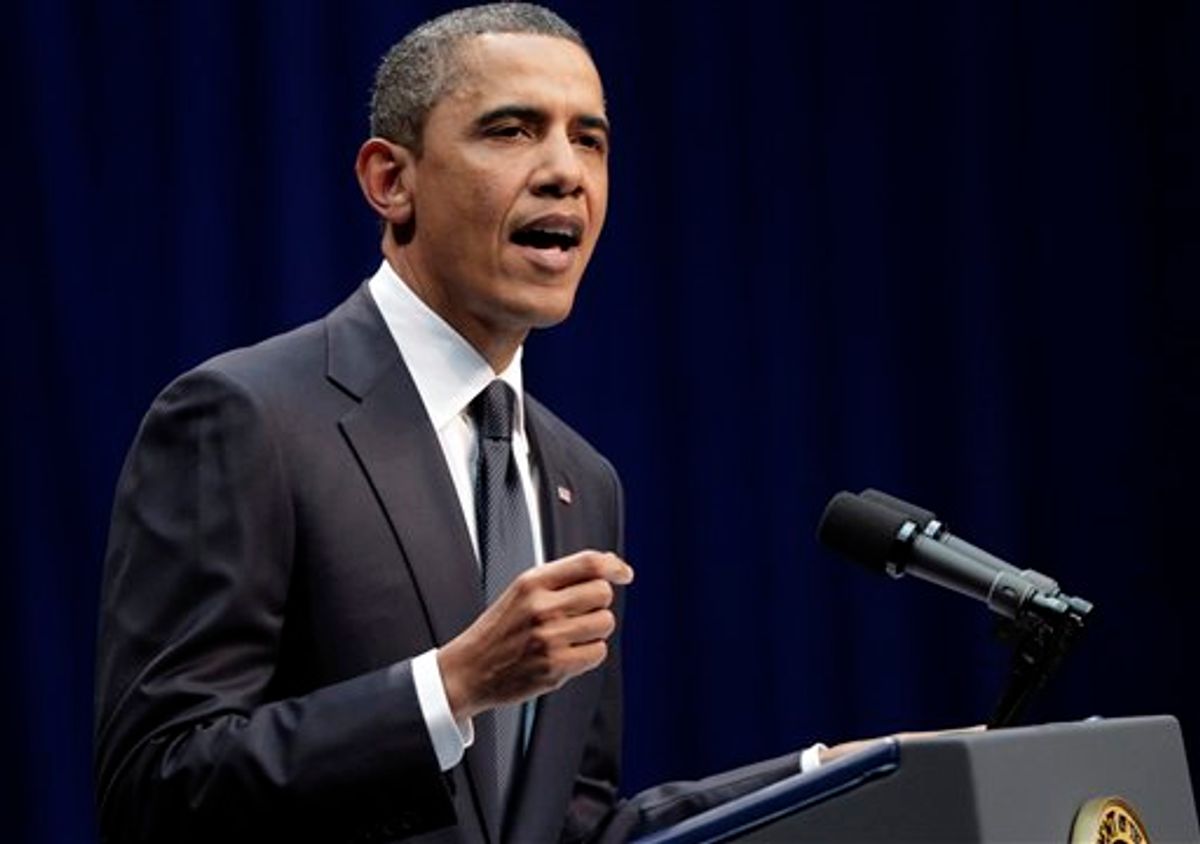Speaking to a capacity crowd and reaching a grieving nation, Barack Obama sounded presidential last night at the Tucson memorial service at the University of Arizona. The speech -- quickly and popularly identified as the best address Obama's given since he was elected -- ran long compared to those of past presidents like Bill Clinton or George W. Bush in times of national tragedy. But the pundits didn't seem to mind one bit.
Chris Cillizza of the Washington Post says Obama sounded like Obama again:
Obama was invested: Unlike some of the Oval office speeches he has delivered where he seemed to be reading the text, Obama was clearly invested in this address -- intellectually and emotionally. And, it showed. Obama spoke in the poetry he used so well in his 2008 campaign, not the prose that has, too often for his supporters, defined his presidency. That was especially true when Obama spoke of the Christina Taylor Green, the youngest victim of the tragedy; "I want us to live up to her expectations," Obama said. "I want our democracy to be as good as she imagined it."
Cillizza's colleague at the Post, E.J. Dionne, likens Obama to a preacher:
President Obama spoke Wednesday night as the pastor in chief, not as a politician. His address in Tucson was highly personal, rooted in the biographies of the victims and in scripture, more about the country as a family than about government. It was neither therapeutic nor political and dealt only in passing with the roiling controversies that have divided left from right.
Salon's editor at large Joan Walsh touts the Americaness of the entire affair, citing a history of imperfection but a commitment to unity:
There it was, folks, Saturday morning and again Wednesday night: our country, as good as it gets. Remember how great it looked and felt and sounded, when things inevitably get ugly again…
Like it or not, that's American history: we are imperfect, descended from people who took land from Indians and Mexicans and who held slaves, but also from people who fought for equal rights for everyone, and who, over time, managed to create laws and values and customs that (mostly) do that.
Calling the speech "hopeful and positive," the Atlantic's James Fallows explains why it succeeded:
The standard comparisons of the past four days have been to Ronald Reagan after the Challenger disaster and Bill Clinton after Oklahoma City. Tonight's speech matched those as a demonstration of "head of state" presence, and far exceeded them as oratory -- while being completely different in tone and nature. They, in retrospect, were mainly -- and effectively -- designed to note tragic loss. Obama turned this into a celebration -- of the people who were killed, of the values they lived by, and of the way their example could bring out the better in all of us and in our country.
The New York Times' Gail Collins acknowledges the Obama-we've-been-waiting-for and asks for more from the president:
Maybe President Obama was saving the magic for a time when we really needed it.
We’ve been complaining for two years about the lack of music and passion in his big speeches. But if he’d moved the country when he was talking about health care or bailing out the auto industry, perhaps his words wouldn’t have been as powerful as they were when he was trying to lift the country up after the tragedy in Tucson.
In case you missed it, here's the full text of Obama's speech. And here's the video:
Correction: A previous verson of this story stated that the speech took place at Arizona State University. The speech in fact took place at the University of Arizona.



Shares